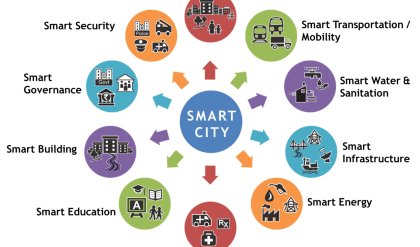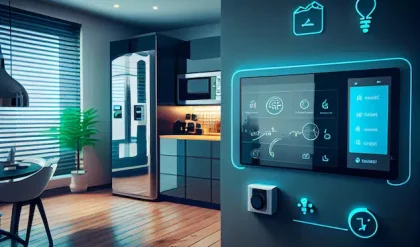
Streamline Your Life: Top 10 Smart Services to Automate Your Day
In today’s fast-paced world, feeling overwhelmed is the new normal. Juggling work, family, and personal life leaves precious little time for, well, anything else. But what if you could reclaim that time? What if technology could effortlessly handle the mundane, freeing you to focus on what truly matters? The answer lies in smart services – automated helpers that silently work in the background, streamlining your daily life.
This isn’t about replacing human connection; it’s about optimizing your efficiency and reclaiming your precious hours. Think of it as upgrading your life’s operating system. Let’s explore ten game-changing smart services that can automate your day and bring back the joy in your routine.
1. Robo-Advisors: Investing Made Easy
Investing can feel daunting, but robo-advisors are here to change that. These AI-powered platforms manage your investments based on your risk tolerance and financial goals, automatically adjusting your portfolio as needed. Say goodbye to endless spreadsheet analysis and hello to effortless wealth building.
2. Smart Home Assistants: Your Digital Butler
From controlling your lights and thermostat to playing your favorite music and managing your calendar, smart home assistants like Alexa or Google Home are your personal digital butlers. These voice-activated helpers streamline daily tasks, making your home smarter and your life easier.
3. Meal Kit Delivery Services: Deliciously Automated Meals
Tired of endless grocery shopping and meal planning? Meal kit services deliver pre-portioned ingredients and easy-to-follow recipes right to your door. Say goodbye to food waste and hello to delicious, stress-free dinners.
4. Online Grocery Delivery: Groceries Without the Fuss
Skip the crowded aisles and long checkout lines. Online grocery delivery services bring your groceries right to your doorstep, saving you precious time and energy.
5. Automated Bill Payment: Never Miss a Payment Again
Avoid late fees and the stress of remembering due dates. Set up automated bill payments and let your bank or financial institution handle the rest.
6. Password Managers: Security Simplified
Remember those days of endless password resets? Password managers store and manage your passwords securely, generating strong unique passwords for each of your accounts. Peace of mind, guaranteed.
7. Email Management Tools: Taming Your Inbox
An overflowing inbox can be a major source of stress. Email management tools help prioritize, categorize, and even automatically filter your emails, allowing you to focus on what truly matters.
8. Calendar & Task Management Apps: Organization On-the-Go
These apps help you manage your schedule and to-do list effortlessly. Features like reminders, notifications, and collaboration tools keep you organized and on top of your commitments.
9. Travel Booking Platforms: Streamlined Travel Planning
Planning a trip can be overwhelming. Automated travel booking platforms compare prices, find the best deals, and manage your itinerary, making travel planning a breeze.
10. Social Media Management Tools: Mastering Your Online Presence
Managing multiple social media accounts can be time-consuming. Automated scheduling tools help you plan and publish content efficiently, freeing you to focus on engagement and community building.
Top 10 Smart Services: A Quick Comparison
| Service | Automation Level | Time Saved | Cost | Stress Reduction |
|---|---|---|---|---|
| Robo-Advisors | High | Significant | Varies | High |
| Smart Home Assistants | High | Moderate | Low to Moderate | Moderate |
| Meal Kit Delivery | High | Significant | Moderate | High |
| Online Grocery Delivery | High | Moderate | Moderate | Moderate |
| Automated Bill Payment | High | Minor | Low | High |
| Password Managers | High | Minor | Low | High |
| Email Management Tools | Moderate | Moderate | Low to Moderate | Moderate |
| Calendar & Task Management | Moderate | Moderate | Low to Moderate | Moderate |
| Travel Booking Platforms | High | Significant | Varies | High |
| Social Media Management | Moderate | Moderate | Low to Moderate | Moderate |
Embracing these smart services isn’t about being lazy; it’s about strategic delegation. By automating the mundane, you free up mental space and time for what truly enriches your life – connections, creativity, and personal growth. So, take control of your day, reclaim your time, and start experiencing the benefits of a truly streamlined life.

Additional Information
Streamline Your Life: A Deeper Dive into Automating Your Day with Smart Services
The concept of automating daily tasks through smart services is gaining significant traction, promising increased efficiency and reduced stress. While a “Top 10” list offers a convenient overview, a deeper analysis is needed to understand the true impact and potential pitfalls of adopting these technologies. This analysis will delve into the underlying principles, potential benefits, limitations, and ethical considerations surrounding the automation of daily life.
Beyond the Surface: Analyzing the “Top 10” Framework
A typical “Top 10 Smart Services” list might include categories like smart home assistants (e.g., Alexa, Google Home), automated payment systems, calendar scheduling apps, online grocery delivery, fitness trackers, subscription box services, email management tools, smart thermostats, automated bill pay, and task management apps. While individually useful, the true value lies in their integrated functionality and the holistic impact on lifestyle management.
1. Integration and Interoperability: The effectiveness of these services hinges on their ability to seamlessly interact. A truly streamlined life requires data sharing between apps and devices – for example, a smart calendar triggering automated home lighting adjustments based on scheduled events, or a fitness tracker informing a health app which adjusts dietary recommendations. However, current interoperability challenges across different platforms remain a significant hurdle. Lack of standardization leads to “siloed” data and reduced overall efficiency.
2. Data Privacy and Security: The increasing reliance on smart services necessitates a critical evaluation of data privacy and security. Each app collects user data, raising concerns about potential misuse, data breaches, and algorithmic bias. Consumers need to be aware of the data collected, how it’s used, and the security measures implemented by service providers. Statistics on data breaches related to smart home devices and online payment systems highlight the inherent risks. (Cite relevant statistics from sources like IBM’s Cost of a Data Breach Report).
3. The “Automation Paradox”: While automation aims to save time, it can paradoxically create new tasks. For instance, managing multiple smart devices and their associated apps can become time-consuming in itself. The learning curve associated with new technologies and troubleshooting technical issues can negate some of the intended benefits. A critical assessment of the time investment required versus the time saved is crucial before adopting these services.
4. Algorithmic Bias and Fairness: Algorithmic decision-making in smart services raises concerns about fairness and potential bias. For example, algorithms used in loan applications or job recruitment processes might inadvertently discriminate against certain demographic groups. Understanding the underlying algorithms and ensuring fairness is a vital aspect of responsible technology adoption.
5. Human-in-the-Loop Systems: Completely automating all aspects of daily life is neither desirable nor feasible. The concept of “human-in-the-loop” systems, where humans retain control and oversight, offers a more balanced approach. This approach allows humans to intervene when necessary, ensuring that automation complements, rather than replaces, human judgment and decision-making.
6. Case Study: Smart Home Automation and Energy Efficiency: One successful example of smart service integration is the use of smart thermostats and home energy management systems. These systems can learn user preferences, adjust temperature settings automatically, and optimize energy consumption, leading to significant cost savings and reduced environmental impact. Studies have shown a considerable reduction in energy bills (cite specific studies showcasing percentage reductions) for households using such systems.
Conclusion:
Streamlining daily life through smart services offers significant potential benefits, but requires a thoughtful and critical approach. A focus on integration, data privacy, addressing the automation paradox, mitigating algorithmic bias, and implementing human-in-the-loop systems is essential to harnessing the full potential of these technologies while avoiding potential drawbacks. Understanding the nuances of individual services and their interplay within a broader ecosystem is crucial for maximizing efficiency and minimizing risks. Further research into interoperability standards, ethical guidelines, and user experience is vital for the continued development and responsible adoption of smart services.





